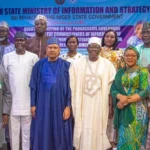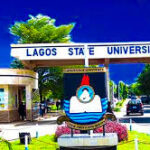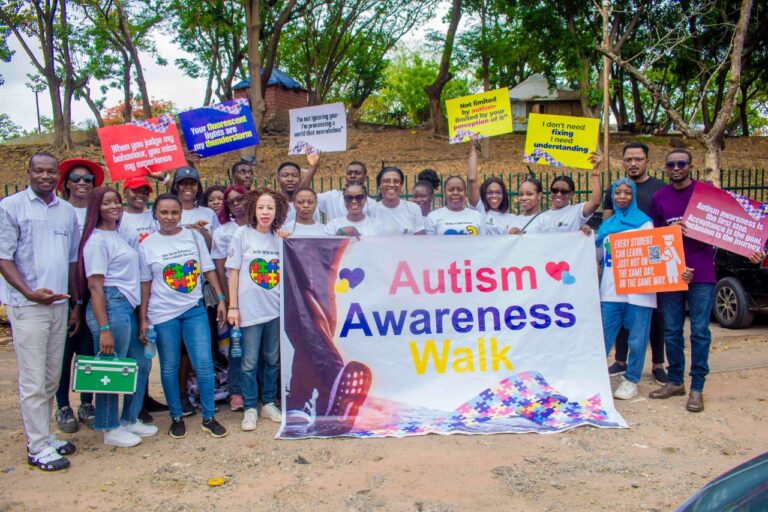Autism: Cadet Academy takes awareness campaign to Wuse Market
By Folasade Akpan
Cadet Academy, a center for special needs children, on Monday took its Autism Spectrum Disorder (ASD) awareness campaign to Wuse Market, Abuja, as part of efforts to deepen Nigerians’ understanding of the disorder.
The campaign, organised in collaboration with the No-Limit Foundation, is aimed at sensitising the public about autism and promoting inclusivity.
Joanne Tiza of Cadet Academy explained that the initiative was inspired by Autism Awareness Month and was designed to foster greater community openness and knowledge about ASD.
“We decided to come to the market because it’s a common meeting point for everyone.
“It’s important to share knowledge and promote inclusivity in every aspect of society.”
Tiza described autism as a condition that affects brain development, impacting a child’s social skills, communication abilities, emotions, and sensory processing.
“It basically involves differences in brain mapping, which makes children with autism behave differently from what is considered typical. Some signs include delayed speech, sensitivity to light or touch, and other sensory issues,” she said.
Highlighting the challenges faced by parents of children with autism, Tiza said societal acceptance remains a significant hurdle.
She stressed that greater awareness would foster a more supportive environment.
Tiza also noted that Cadet Academy provides special interventions aimed at helping children with autism achieve independence and live with minimal support from the community.
Meanwhile, Zeebah Foundation, a non-governmental organisation, called on governments at all levels to invest in therapy centres for children with autism.
Ms Godsfavor Chukwuma, a Behavioural Therapist with Zeebah Foundation, emphasised that therapy for children with autism was expensive and often beyond the reach of many families.
“Therapy is not a one-time thing; autism is a lifelong condition that requires continuous intervention. Many families are willing to seek help but cannot afford the cost,” Chukwuma said.
She advocated for the establishment of government-run community centres dedicated to special needs children, staffed with occupational, behavioural, and other specialised therapists.
“With such centres, therapy fees could be significantly subsidised, making it accessible to more families,” she added.
Chukwuma also stressed the importance of early intervention, advising parents and caregivers to monitor developmental milestones in children from as early as eight months to three years.
“If a child fails to meet developmental milestones, parents should seek an assessment immediately. Early diagnosis and intervention can make a significant difference,” she said.
She further explained that with timely therapy, children with autism can learn essential skills to integrate more fully into society and lead more independent lives.
The News Agency of Nigeria (NAN) reports that April is Autism Awareness Month and the 2025 theme is “Advancing Neurodiversity and the UN Sustainable Development Goals (SDGs)” aimed at highlighting the intersection between neurodiversity and global sustainability efforts. (NAN)(www.nannews.ng)
Edited by Ekemini Ladejobi
Published By
Has also recently published
 AviationJuly 11, 2025FAAN, Customs intensify efforts to exit grey list
AviationJuly 11, 2025FAAN, Customs intensify efforts to exit grey list Oil & GasJuly 11, 2025AKK gas pipeline project progressing – FG
Oil & GasJuly 11, 2025AKK gas pipeline project progressing – FG EducationJuly 11, 2025Sanwo-Olu applauds LASU for topping list of sought-after institutions
EducationJuly 11, 2025Sanwo-Olu applauds LASU for topping list of sought-after institutions Economy/BusinessJuly 11, 2025NGX posts historic single-day gain of N1.806trn
Economy/BusinessJuly 11, 2025NGX posts historic single-day gain of N1.806trn





